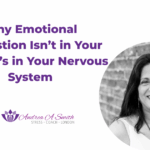How to cope when depression or anxiety is a part of a committed relationship? Sometimes both parties look through a distorted lens and feel an issue with the relationship or another person. Managing mental health in a relationship.
The first thing to do would be to establish whether there is a problem with the relationship or if one of the partners has a mental health issue. Then find support in a common language to communicate and explain what is going on, i.e. some work anxiety or depressive thoughts and get help or support – a Therapist can be a mediator that can discuss the problems & manage mental health in the relationship.
Section 1: Why is it important to be honest about mental health?
In a committed relationship, your health affects your other half. Each relationship is unique – some people may suffer physical ailments and live with these for years – others may suffer from mental health disorders and live with them for only a short time. But through experiencing these, it is easy to forget that these are different and serious conditions. The person in a committed relationship may have depression, anxiety and suicidal thoughts and can share these with you. Depression and anxiety can make your relationship all the more difficult to deal with. Therefore, it is essential to have open and honest conversations about mental health.
The Hardest Thing About managing Mental Health in A Relationship
The first step is asking for help, which is the hardest step to take. There’s no getting around it. But you know that already! You know that “Getting help” is a real thing. You know that “Getting help” is something you have to do. But it’s not always easy to do it. How do you cope when your partner is struggling with their mental health? How do you navigate relationships when one or both have a mental health problem? “I must be strong and deal with my depression alone because my partner would never understand it.” ‘My partner has been struggling with mental health problems’.
How To Be Honest About Mental Health
Maybe one of you is having a bad day doesn’t mean they have a terrible relationship. On the flip side, just because someone has a bad day doesn’t mean they have a terrible relationship. This is a common misconception and results in us being afraid to tell others that we are struggling and worried that they would somehow understand and no longer want to be in the relationship. Suppose we stop short of telling people how we feel. In that case, we become dependent on their interpretation of our behaviour rather than seeing the state of our relationship as something in complete and utter control of us. The anxiety about other people’s opinions stops us from recognising that we are having a bad day – because we then believe we have no right to feel as we do.
Tips for Managing Mental Health in A Relationship
- Keep the focus on the present- It’s easier for a depressed person to be negative than itis to deal with depression – they can find it difficult to see the positives if they know you are seeing it as ‘all this suffering’ – all they see is the negative.
- Keep loving- Being rejected and/or abandoned sucks. However, you must remember what’s important: being there for your partner.
- Learn more about depression- Learn how to support someone—simple things such as recognising depression, and anxiety symptoms and what to do when you see them struggling.
- Give yourself time. Being depressed is a state of mind that can last from minutes to years – it can even last for years in families – it’s essential to give yourself the time to get better and keep pushing for help.
What To Do When You’re Feeling Particularly Alone or Upset
Have an honest chat and discuss what you both can do moving forward:
- Isolation makes us feel vulnerable and uncertain about the future. There is nothing worse than feeling there is nobody who understands you.
- It’s also hard to admit when we’re not coping so well. So get out of the house. Go for a walk. Take a journey – watch something you’ve always wanted to see, go to a different part of the world or visit a friend you haven’t seen for a while.
- Work out who you can trust; make sure you are making time for them.
- Use technology to communicate. Send text messages and emails to say hi.
- Be there for each other – on the inside, not only on social occasions
- Organise a night out – to catch up, talk about things, drink wine and laugh.
Conclusion
Managing Mental health problems can make relationships challenging to manage. Encouraging our partners to help by acting as a sounding board and speaking to them honestly and openly is the only way to move forward. Having a supportive partner will allow them to know they are not alone – and should be self-centred. By encouraging your partner to ask for help, you help them feel confident that you believe they are worth it.
Contact me at hello@andreaasmith.com if you need help dealing with your partner’s mental health problems and communicating effectively & managing mental health in relationships.










